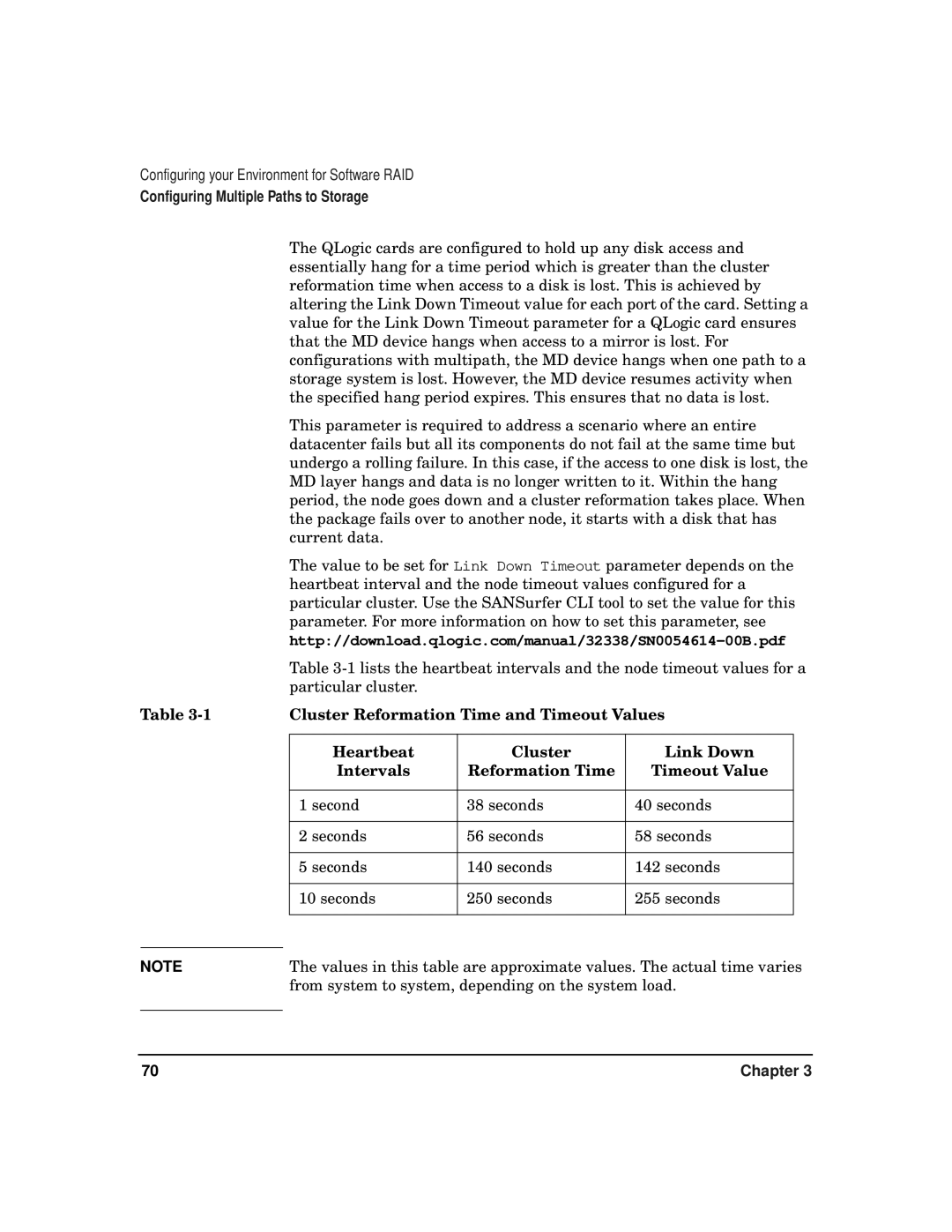Configuring your Environment for Software RAID
Configuring Multiple Paths to Storage
The QLogic cards are configured to hold up any disk access and essentially hang for a time period which is greater than the cluster reformation time when access to a disk is lost. This is achieved by altering the Link Down Timeout value for each port of the card. Setting a value for the Link Down Timeout parameter for a QLogic card ensures that the MD device hangs when access to a mirror is lost. For configurations with multipath, the MD device hangs when one path to a storage system is lost. However, the MD device resumes activity when the specified hang period expires. This ensures that no data is lost.
This parameter is required to address a scenario where an entire datacenter fails but all its components do not fail at the same time but undergo a rolling failure. In this case, if the access to one disk is lost, the MD layer hangs and data is no longer written to it. Within the hang period, the node goes down and a cluster reformation takes place. When the package fails over to another node, it starts with a disk that has current data.
The value to be set for Link Down Timeout parameter depends on the heartbeat interval and the node timeout values configured for a particular cluster. Use the SANSurfer CLI tool to set the value for this parameter. For more information on how to set this parameter, see
Table
Table |
| Cluster Reformation Time and Timeout Values | |||
|
|
|
|
|
|
|
| Heartbeat | Cluster | Link Down |
|
|
| Intervals | Reformation Time | Timeout Value |
|
|
|
|
|
|
|
|
| 1 second | 38 seconds | 40 seconds |
|
|
|
|
|
|
|
|
| 2 seconds | 56 seconds | 58 seconds |
|
|
|
|
|
|
|
|
| 5 seconds | 140 seconds | 142 seconds |
|
|
|
|
|
|
|
|
| 10 seconds | 250 seconds | 255 seconds |
|
|
|
|
|
|
|
|
|
|
|
|
|
NOTE |
| The values in this table are approximate values. The actual time varies | |||
|
| from system to system, depending on the system load. | |||
|
|
|
|
|
|
70 | Chapter 3 |
